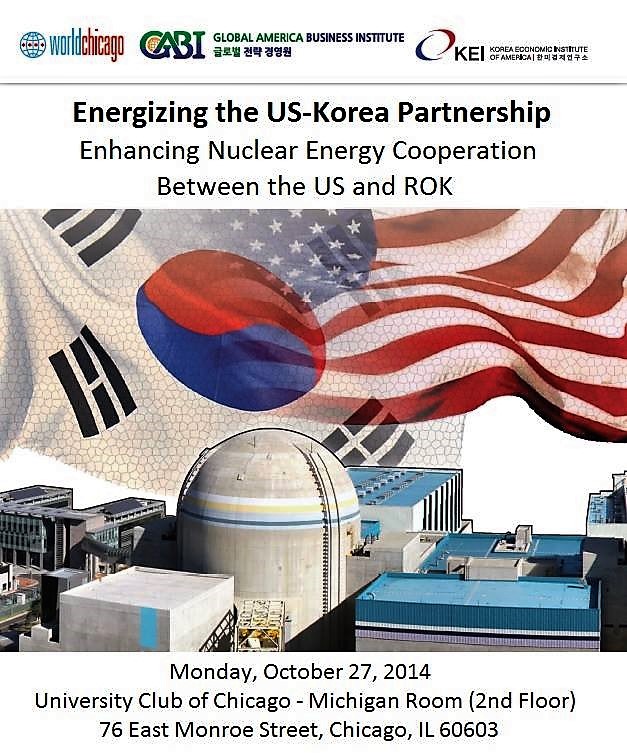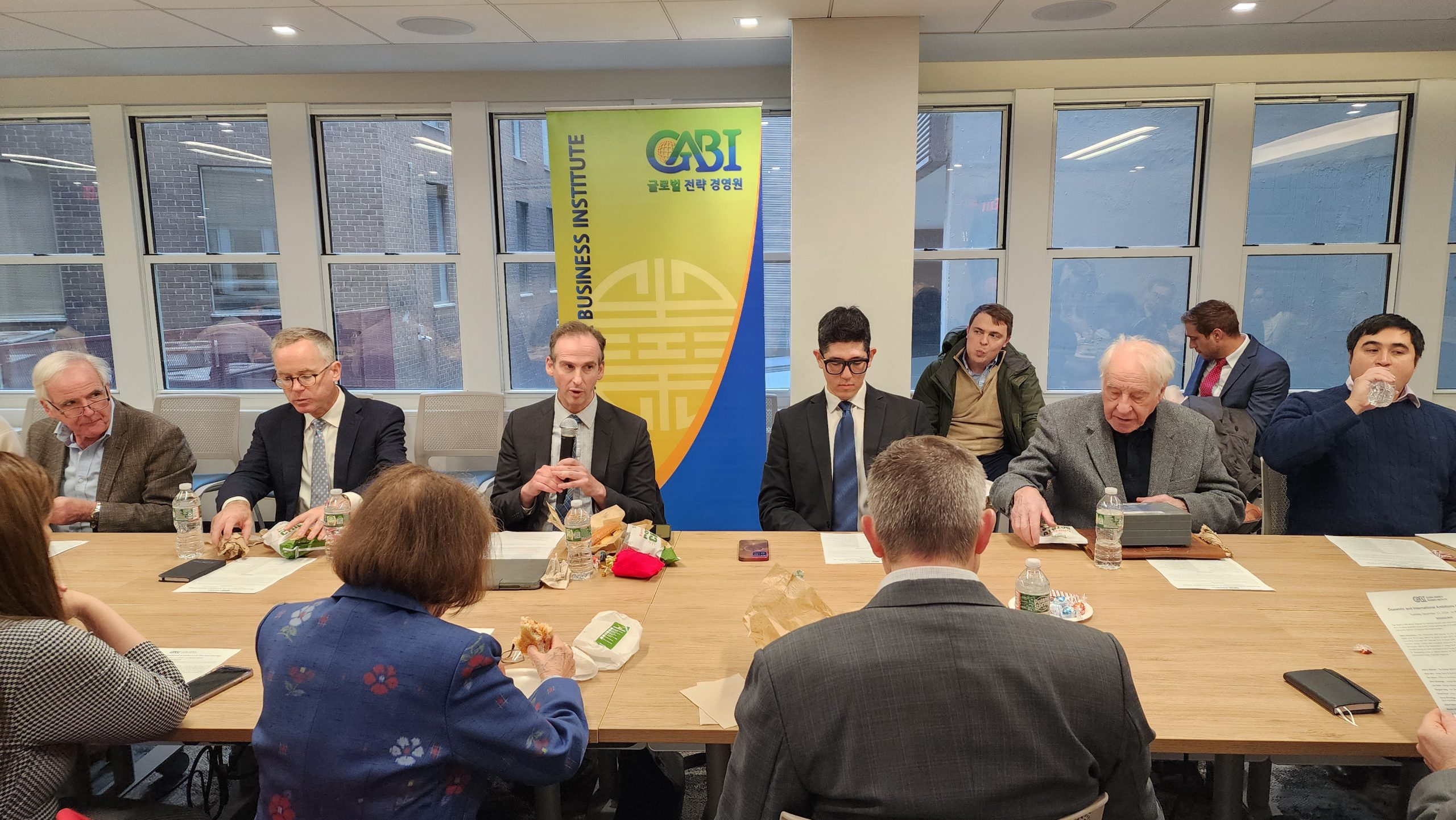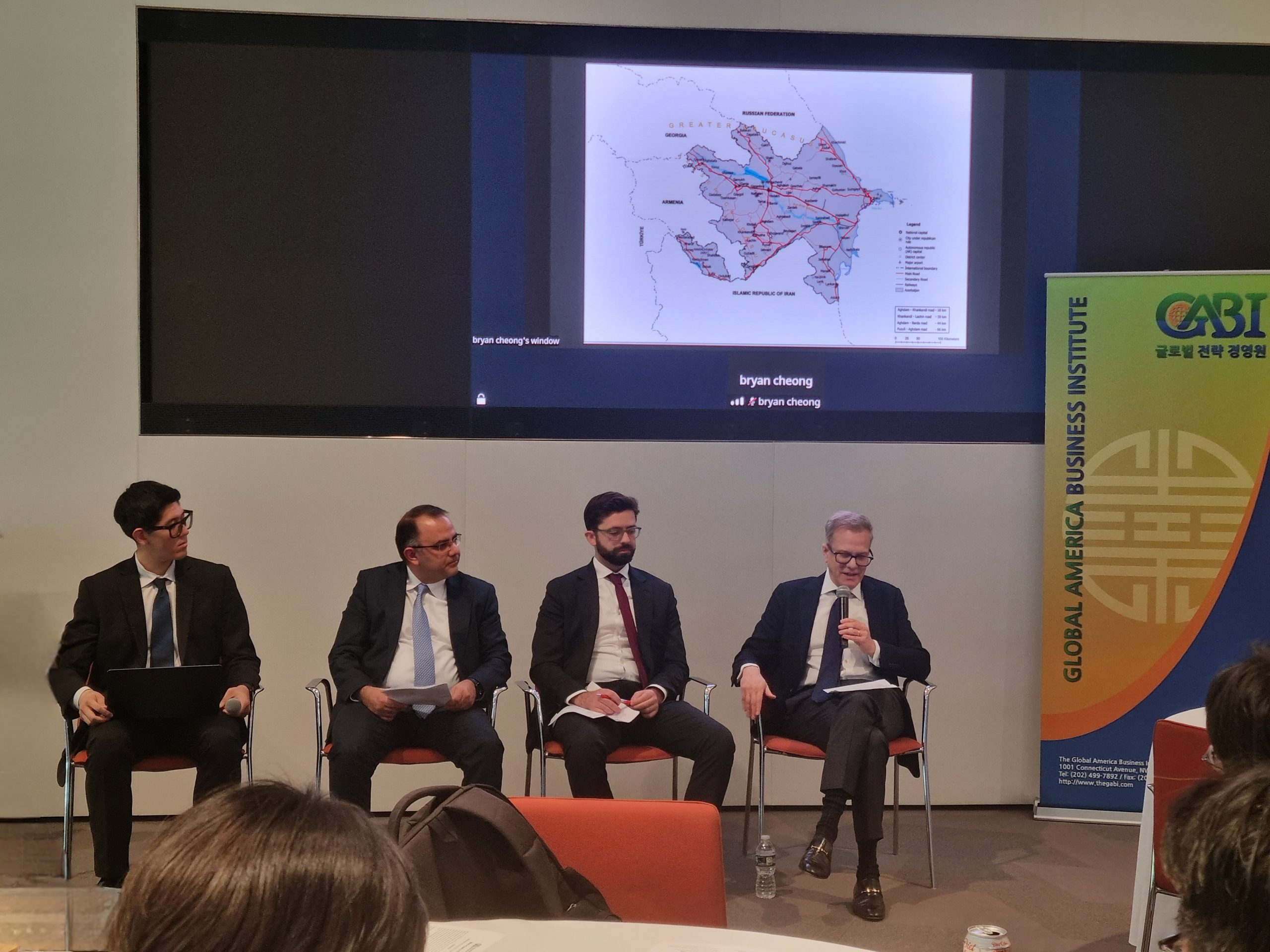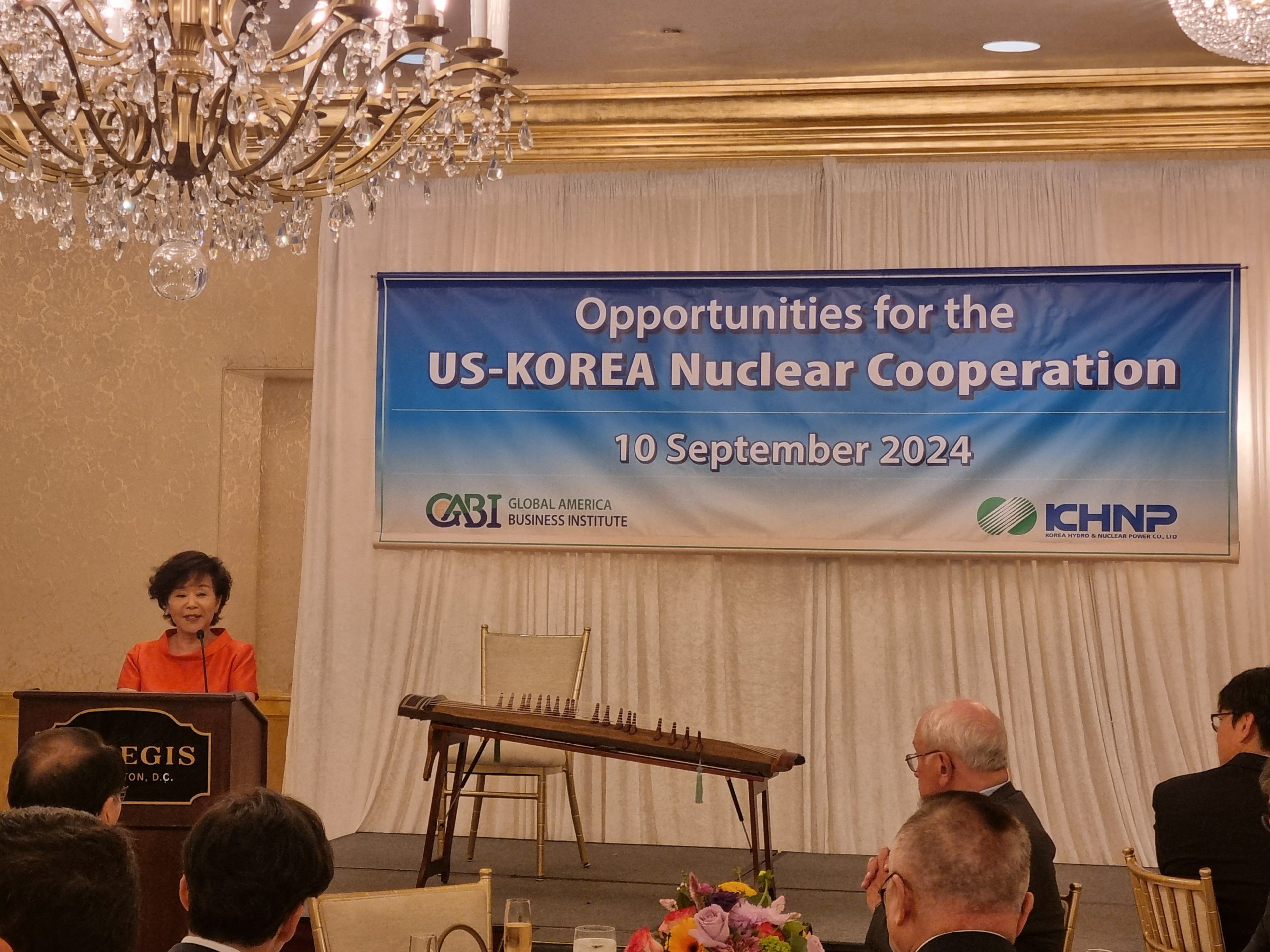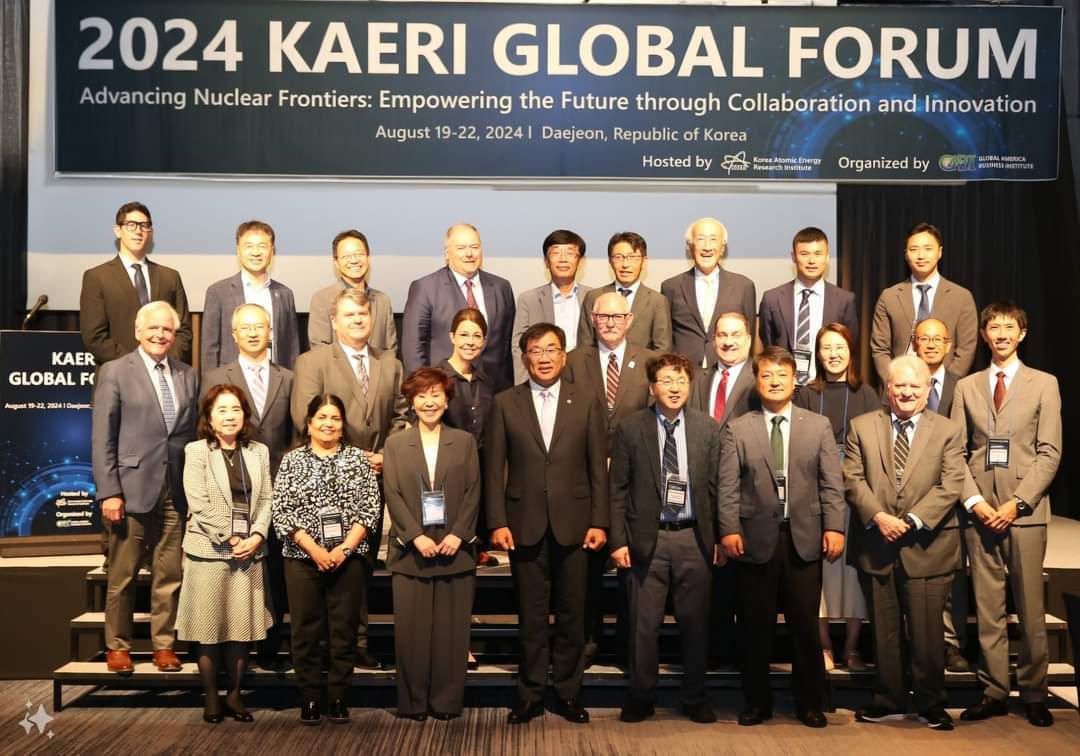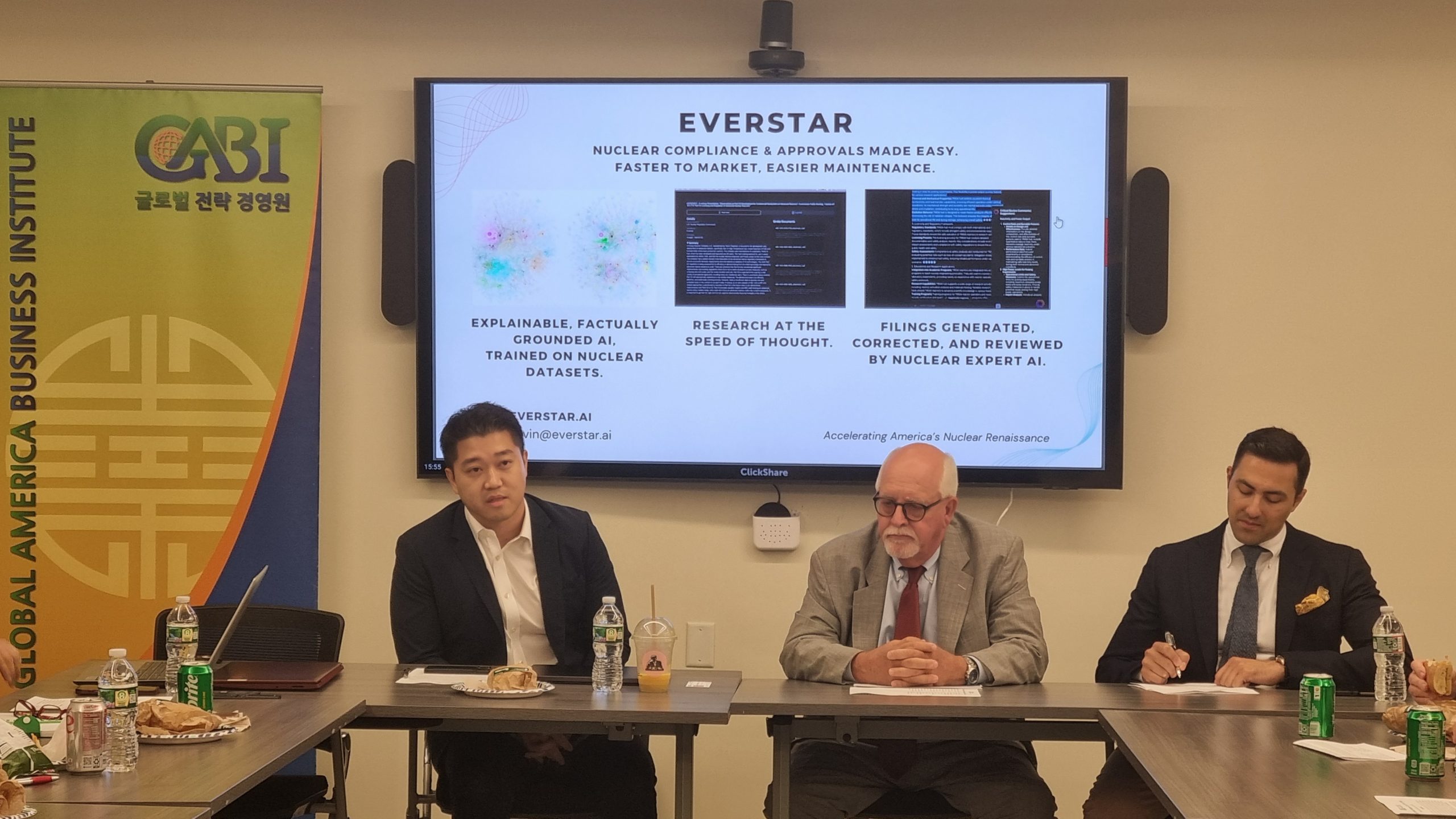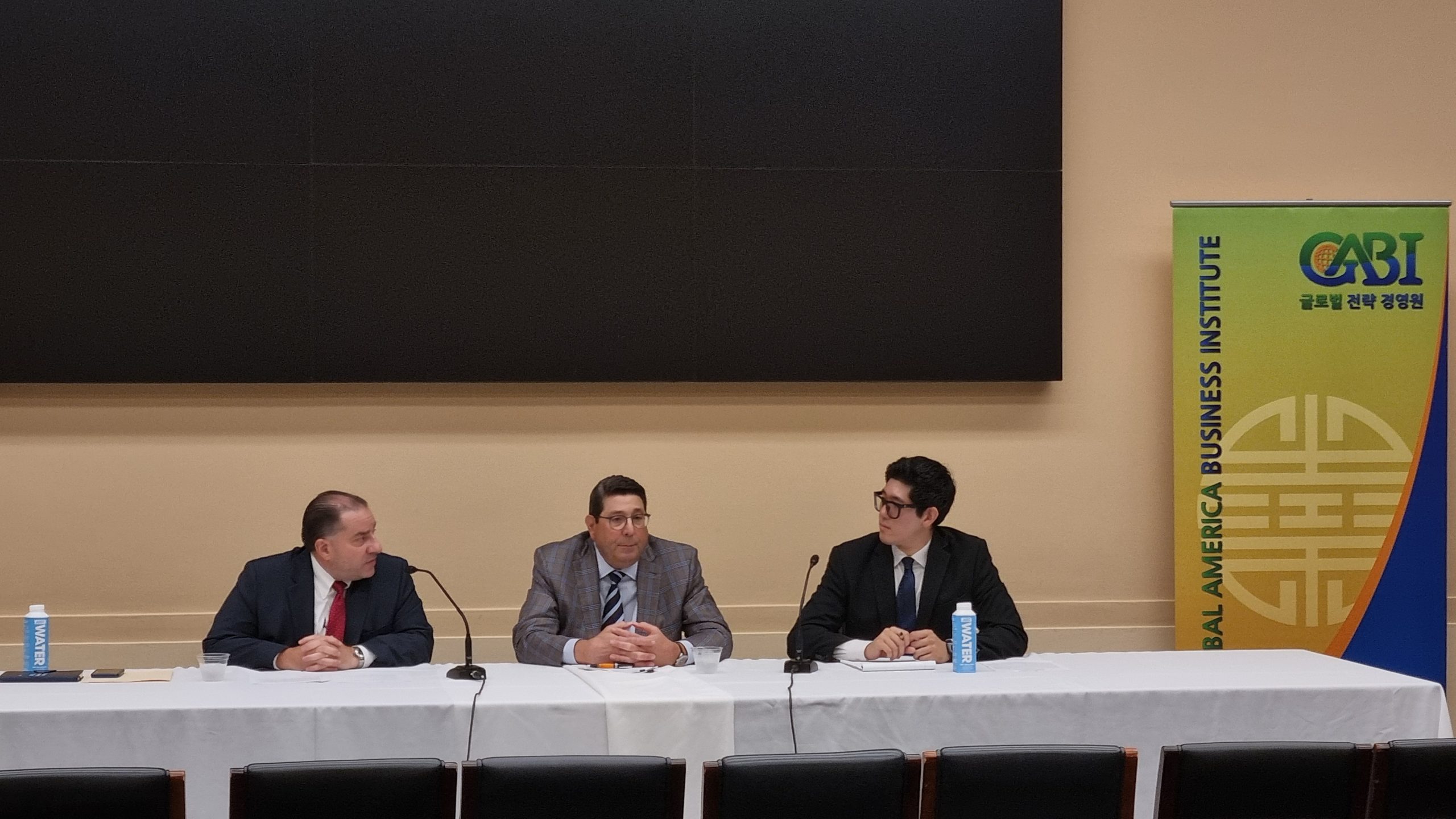In close collaboration with WorldChicago and Korea Economic Institute of America, GABI organized a public forum entitled, “Energizing the US-Korea Partnership: Enhancing Nuclear Energy Cooperation Between the US and ROK.” The forum took place at the University Club of Chicago, and featured remarks and presentations from The Honorable Judy Biggert (former US Representative, IL-13th), Dr. Yoon Chang (Argonne Distinguished Fellow, Argonne National Laboratory), Dr. KunMo Chung (former ROK Minister of Science and Technology, Senior Adviser for KEPCO), The Honorable Sang-il Kim (Consul General of the ROK in Chicago), and Dr. Gail Marcus (former President of the American Nuclear Society, Deputy Director-General of the OECD NEA).
US-Korea civil nuclear cooperation has evolved greatly over the decades since the US built Korea’s first civilian reactors on a turnkey basis in 1978. Korea is now a major player in the global nuclear market, and the US-Korea nuclear energy relationship is presently bearing fruit on many levels: advanced technology R&D, commerce and trade, norm setting in nuclear safety and nonproliferation, etc. The two countries are currently engaged in a ten-year Joint Fuel Cycle Study (JFCS) between US national laboratories, including Argonne National Laboratory (ANL) and Idaho National Laboratory (INL), and the Korea Atomic Energy Research Institute (KAERI), and recently, ANL agreed with KAERI to jointly develop the Prototype Generation-IV Sodium-cooled Fast Reactor (PGSFR), a project which has the potential to fundamentally address issues traditionally associated with nuclear power: safety, waste, and proliferation. The nuclear industries of both the US and Korea are also closely linked—American companies are active participants in Korean-led nuclear construction projects and vice versa. This industrial relationship has undeniably been a boon for the US economy in terms of both exports and job creation. With the importance of nuclear power likely to grow in coming years due to soaring global energy demand and the need to address climate change, the US-Korea civil nuclear partnership has the opportunity to positively shape world standards in nuclear safety, security, and nonproliferation, ensuring a brighter and more prosperous future with nuclear energy throughout the world.










